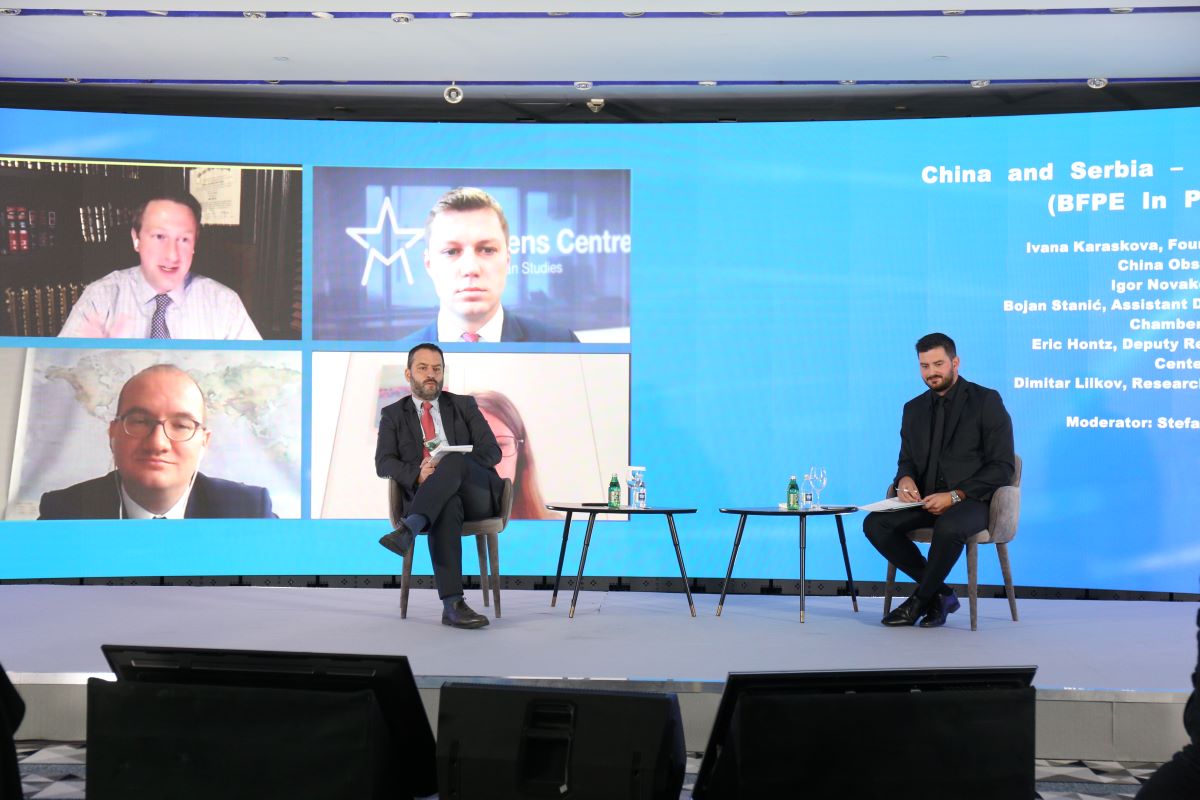Chinese investments can be constructive if domestic actors are responsible enough
At the beginning of the Panel, Mr. Eric Hontz, Deputy Regional Director, Europe and Euroasia made a difference between corrosive and constructing capital, highlighting that there are no inherently bad investment, but that the domestic agents are the ones responsible to prevent potentially harmful influences through implementation of national normative frameworks.
Experience from the other regions show that there some challenges coming from the increasing presence of China. After the economic crisis in 2008, local political actors from Visegrad group started presenting China as savior in order to diversify economic ties, stated Ms. Ivana Karaskova, Founder and Leader of MapInfluence and China Observers in Central and Eastern Europe. China employed experts to defend their political and economic interests in these countries. China started to invest and the trade has increased. Research shows that when China invests in local media neutral or negative reports on China disappear, emphasized Karaskova.
One of many tools to prevent this from happening is the introduction of the investment screening mechanism. But this mechanism has its limits.
It’s not enough to just have foreign investment screening mechanism in place. You have to force governments to use them, said Karaskova.
Mr. Igor Novaković, Research Director at the International Security Affairs Centre – ISAC Fund, talked about difference between investments coming from China and investments coming from other countries. When it comes to Chinese companies there are problems such as informal influence from communist party, transparency, ownership structure etc. Also, when it comes to those companies, Serbia is fully in charge of maintaining regulations. That leads to environmental issues, avoidance of the rules through implementation of projects and spillover effects.
Mr. Bojan Stanić, Assistant Director at the Strategic Analysis & Data at Chamber of Commerce and Industry of Serbia, highlighted some beneficial aspects of cooperation with China, mentioning that China was the only leading economy that has avoided recession during the pandemics. Global growth rates are directly tied to the growth of China’s GDP and Serbia is the most attractive country in the region. That is why the economic cooperation is on the rise. In the last five years one fifth of Chinese investments were in Serbia and that created workplaces for 20 000 people, declared Stanić.
One of the ways to prevent harmful consequences and facilitate positive ones. Business and civil society must cooperate and work together to make sure that government is accountable, because every governance gap can be perceived as an opportunity for corruption, stated Eric Hontz. He underlined that situation is not any different when it comes to the companies from the Western countries. For example, Rio Tinto should fully comply with the law and be held accountable just as any other investor in Serbia is.
“The question is what types of investments and business culture do you want to promote”, said Hontz. Reiterating once again that this is the job of the domestic actors as well.
Research Officer at the Wilfried Martens Centre for European Studies, Mr. Dimitar Lilkov, said that main trends in China’s export of digital technology. He pointed out that the China is the global leader in export of surveillance technology (they export in 70 countries), biometric equipment (some experts call this ‘’data colonialism’’) as well as in exporting of telecommunication infrastructure – China’s laws oblige companies to cooperate with the state and even to transfer data to them (for instance, Huawei). He added that smart cities need to establish standards on data protection to evade the potential for digital authoritarianism.








